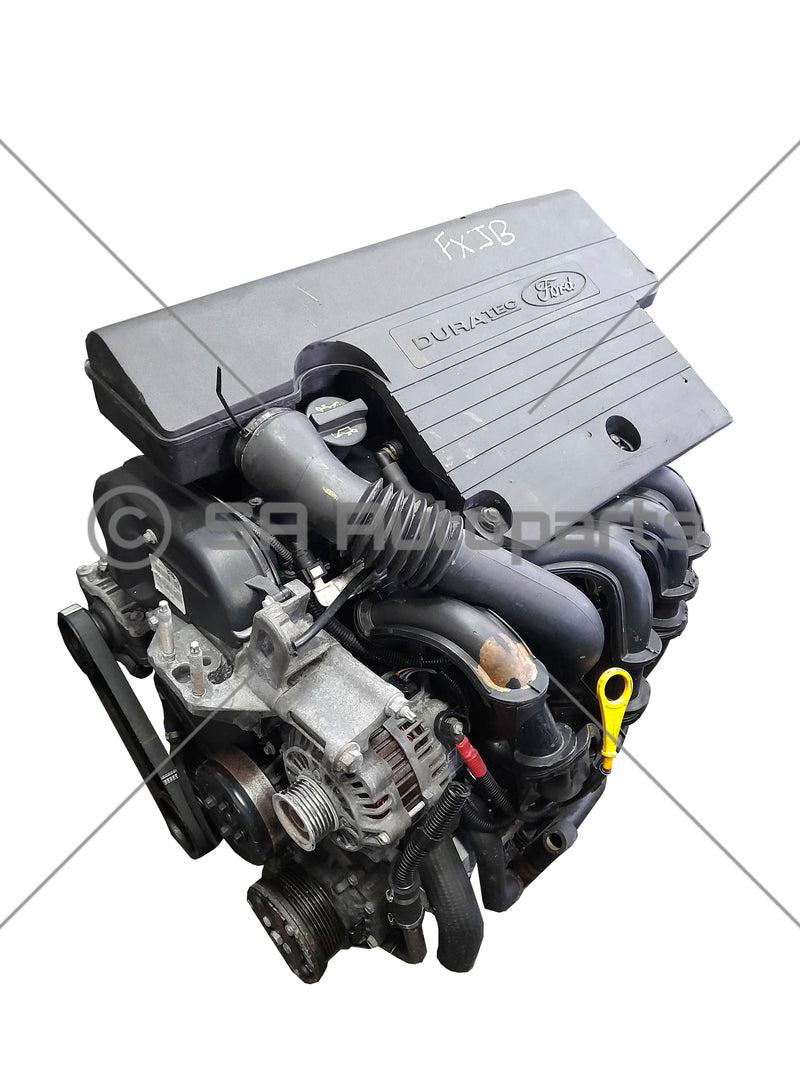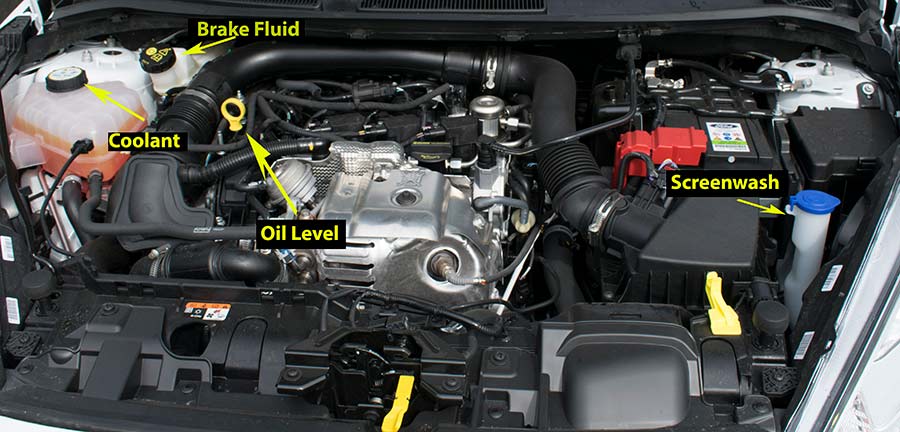Troubleshooting Ford Fiesta Engine Problems: What You Need to Know
Wiki Article
The Future of Engines: Technologies Driving Lasting Power Solutions
As the auto sector browses the important transition in the direction of sustainability, the future of engines is significantly specified by groundbreaking innovations. Electric engine developments, alongside encouraging advancements in hydrogen fuel cells and biofuels, are improving the landscape of power options. The appearance of hybrid systems additionally complicates this evolution, providing both difficulties and opportunities to decrease emissions efficiently. Combined with the integration of synthetic knowledge in engine style, these technological strides raise vital inquiries concerning their lasting practicality and influence on typical paradigms. What might this indicate for the sector and consumers alike?Electric Engine Advancement
The advancement of electrical engine growths indicates a crucial shift in the auto and aerospace markets, driven by the urgent demand for lasting choices to fossil fuels. This shift is identified by significant innovations in battery modern technology, power electronic devices, and electrical motor layout, which jointly improve the efficiency and efficiency of electric engines.Recent innovations have brought about the development of lighter, much more energy-dense batteries, such as lithium-silicon and solid-state batteries, which promise longer ranges and shorter billing times. In addition, improvements in electric motor effectiveness, such as the use of irreversible magnets and progressed cooling systems, enable electric engines to run efficiently under varying conditions. These improvements not only improve automobile performance yet also add to a decrease in total energy consumption.
Furthermore, the combination of innovative software application algorithms has optimized power monitoring in electric cars, permitting for regenerative stopping and anticipating charging methods. As suppliers increasingly embrace electrical propulsion, the aerospace and automotive industries are witnessing a paradigm change in the direction of greener modern technologies. This advancement not just meets regulative demands however also straightens with customer choices for eco-friendly transport solutions, strengthening electric engines as a keystone of future lasting movement.
Advancements in Biofuels
As the vehicle and aerospace markets progressively focus on sustainable power sources, innovations in biofuels become a corresponding remedy to electric engines. Biofuels, obtained from organic materials such as crops, waste, and algae, provide an innovative opportunity for decreasing greenhouse gas discharges and reliance on nonrenewable fuel sources.Current study has actually concentrated on improving the effectiveness and sustainability of biofuel production. Second-generation biofuels use non-food feedstocks, reducing competitors with food supply and minimizing ecological impact. Developments in synthetic biology have allowed the design of bacteria to generate biofuels much more efficiently, leading to higher yields and lower manufacturing costs.
Additionally, the growth of drop-in biofuels permits smooth combination right into existing facilities, enabling a smoother shift for sectors typically depending on nonrenewable fuel sources. ford fiesta engine. These fuels can be made use of in present engines without adjustments, facilitating their fostering throughout different fields
Investments in biofuel innovation, along with supportive plans, are vital to drive innovation and scalability. As the global area looks for to combat environment adjustment, biofuels supply a practical, prompt service that straightens with the overarching objective of sustainability in transportation and air travel.
Hydrogen Fuel Cell Technology
A growing variety of scientists and firms are exploring hydrogen fuel cell modern technology as a sensible alternative to standard source of power in transport and energy systems. This innovation transforms chemical power from hydrogen right into electricity with an electrochemical reaction, with water as the only by-product, making it an eco-friendly choice.The core of hydrogen fuel cells is the fuel cell stack, where hydrogen molecules are split into electrons and protons. The circulation of electrons generates electrical power, while protons relocate through a membrane to combine with oxygen from the air, developing water. This procedure results in high efficiency and low discharges, positioning hydrogen fuel cells as an important player in the change to sustainable power.
Substantial advancements have been made in improving the sturdiness and effectiveness of gas cells, together with decreasing expenses with innovative production methods. The advancement of hydrogen manufacturing approaches, such as electrolysis powered by renewable power sources, improves the sustainability of the overall system. As facilities for hydrogen refueling expands and manufacturing techniques come to be a lot more effective, hydrogen fuel cell modern technology holds wonderful promise for decarbonizing different sectors, consisting of heavy-duty transport and stationary power generation.
Crossbreed Systems and Their Impact
Hybrid systems stand for a considerable development in lasting engine modern technology, combining conventional inner burning engines with electrical propulsion to maximize energy efficiency and decrease exhausts (ford fiesta engine). This dual approach permits cars to utilize both power resources, allowing better versatility in power intake and decreasing reliance on nonrenewable fuel sources

In enhancement to environmental benefits, crossbreed systems offer customers a feasible shift towards totally electrical lorries. Going Here They ease array anxiety by integrating the benefit of gasoline with the advantages of electrical propulsion, making them an attractive alternative for a bigger audience.
The Duty of AI in Engine Design
Leveraging advanced formulas and machine knowing methods, the automotive sector is increasingly integrating artificial intelligence (AI) right into engine style procedures. AI improves the performance and efficiency of design by assessing large datasets to recognize optimum setups and efficiency parameters. This ability permits engineers to mimic numerous operating conditions and predict engine actions under multiple circumstances, dramatically reducing the time and price connected with traditional prototyping approaches.Moreover, AI promotes the growth of innovative products and burning procedures customized for sustainability. By maximizing gas effectiveness and decreasing exhausts, AI-driven styles straighten with international initiatives intended at minimizing the carbon impact of automotive engines. Artificial intelligence algorithms can additionally predict upkeep demands, causing improved dependability and longevity of engine components.
In Addition, AI is critical in the assimilation of electrification innovations, such as hybrid systems, where it can maximize battery management and power healing processes. As the market relocates towards even more lasting power solutions, the duty of AI in engine style ends up being significantly vital, driving advancement and improving the performance of future engines. Inevitably, the partnership in between AI and engine layout advertises a new period of smarter, cleaner, and more reliable automobile innovations.

Conclusion
In verdict, the future of engines is being shaped by a convergence Our site of innovative modern technologies that focus on sustainability. Electric engine improvements, biofuel developments, hydrogen fuel cells, and hybrid systems jointly contribute to a significant decrease in emissions and ecological effect. In addition, the integration of artificial intelligence in engine design improves performance and performance. These transformative options highlight a dedication to developing a cleaner, more lasting automobile landscape, eventually profiting both society and the setting. you can try this outElectric engine developments, alongside appealing advancements in hydrogen gas cells and biofuels, are improving the landscape of power remedies. In addition, improvements in electrical motor efficiency, such as the use of long-term magnets and advanced cooling systems, make it possible for electrical engines to operate successfully under differing conditions. By enhancing gas efficiency and decreasing emissions, AI-driven styles align with global efforts intended at lowering the carbon impact of auto engines. As the sector moves in the direction of even more lasting power remedies, the role of AI in engine layout becomes significantly essential, driving innovation and improving the performance of future engines. Electric engine innovations, biofuel developments, hydrogen gas cells, and hybrid systems jointly add to a substantial reduction in emissions and environmental impact.
Report this wiki page